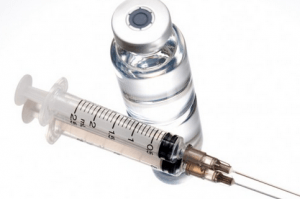Parliament passes National Vaccine Institute Bill, 2022
 Parliament Tuesday passed the National Vaccine Institute Bill, 2022 to facilitate the production of vaccines in Ghana.
Parliament Tuesday passed the National Vaccine Institute Bill, 2022 to facilitate the production of vaccines in Ghana.
The Bill intends to establish a National Vaccine Institute to coordinate and supervise the research, development and manufacture of vaccines and sera in Ghana.
The lack of a sustainable supply of vaccines to fight against diseases in the country had informed the establishment of the National Vaccine Institute.
Ghana established the Expanded Programme on Immunisation (EPI) in 1978, afterwards, the programme received substantial financial and technical assistance from Gavi, the vaccine alliance.
Currently, Gavi supports over 89 per cent of the cost of vaccines and vaccine delivery within the country.
However, Ghana had attained the lower middle-income country status and is expected to transition from Gavi support by the year 2027.
Consequently, the country needed to be self-reliant, especially in the domestic development and manufacture of vaccines and sera.
A memorandum chaperoning the Bill explained that the Coronavirus Disease (COVID-19) pandemic had ravaged global health systems and economies.
Since Ghana recorded the first two cases in March 2020, she had not been spared the negative impact of COVID-19 on public health and socio-economic lives.
“The emergence of new variants of COVID-19 has also put the country in a state of uncertainty.
“Although the world now has COVID-19 vaccines to help fight the pandemic, there has been inadequate deployment in Africa due to limited manufacture capacity and global supply chain challenges,” it said.
The memorandum noted that vaccine nationalism also remained a challenge to achieving satisfactory immunity for adequate protection for the targeted population.
As of September 14, 2021, it said Ghana had fully vaccinated only 5.1 per cent of the population, a far cry from the national target of 66 per cent of Ghanaians needed to achieve herd immunity.
Additionally, it said domestic vaccine development and manufacture were needed to aid in the fight against communicable diseases such as malaria, Cholera, HIV/AIDS and Tuberculosis, which continued to be a burden on the country.
The memorandum pointed out that the Government of Ghana’s policy direction of “Ghana Beyond Aid” also highlighted the need to chart the route towards self-reliance to boost economic development.
Owing to the above, it said President Nana Addo Dankwa Akufo-Addo set up a Presidential Committee on Vaccine Development and Manufacturing to bring to life the vision of domestic vaccine manufacturing.
The committee held extensive engagements with stakeholders relevant to the development and manufacture of vaccines in Ghana and assessed the country’s capacity for vaccine development and manufacture.
“The committee recommended the establishment of a National Vaccine Institute to coordinate the manufacture and development of vaccines and sera in the country,” it said.
The President, during his 26th update on July 25, 2021, on measures taken by the Government on COVID-19 prevention, announced that a National Vaccine Institute would be established with a seed fund of $25 million per the recommendation of the Presidential Committee on Vaccine Development and Manufacturing.
“The National Vaccine Institute, is thus, expected to operationalise government’s vision of securing the much-needed vaccines through domestic vaccine development and manufacturing in the short, medium- and long-term phases,” the memorandum said.
Source: GNA
